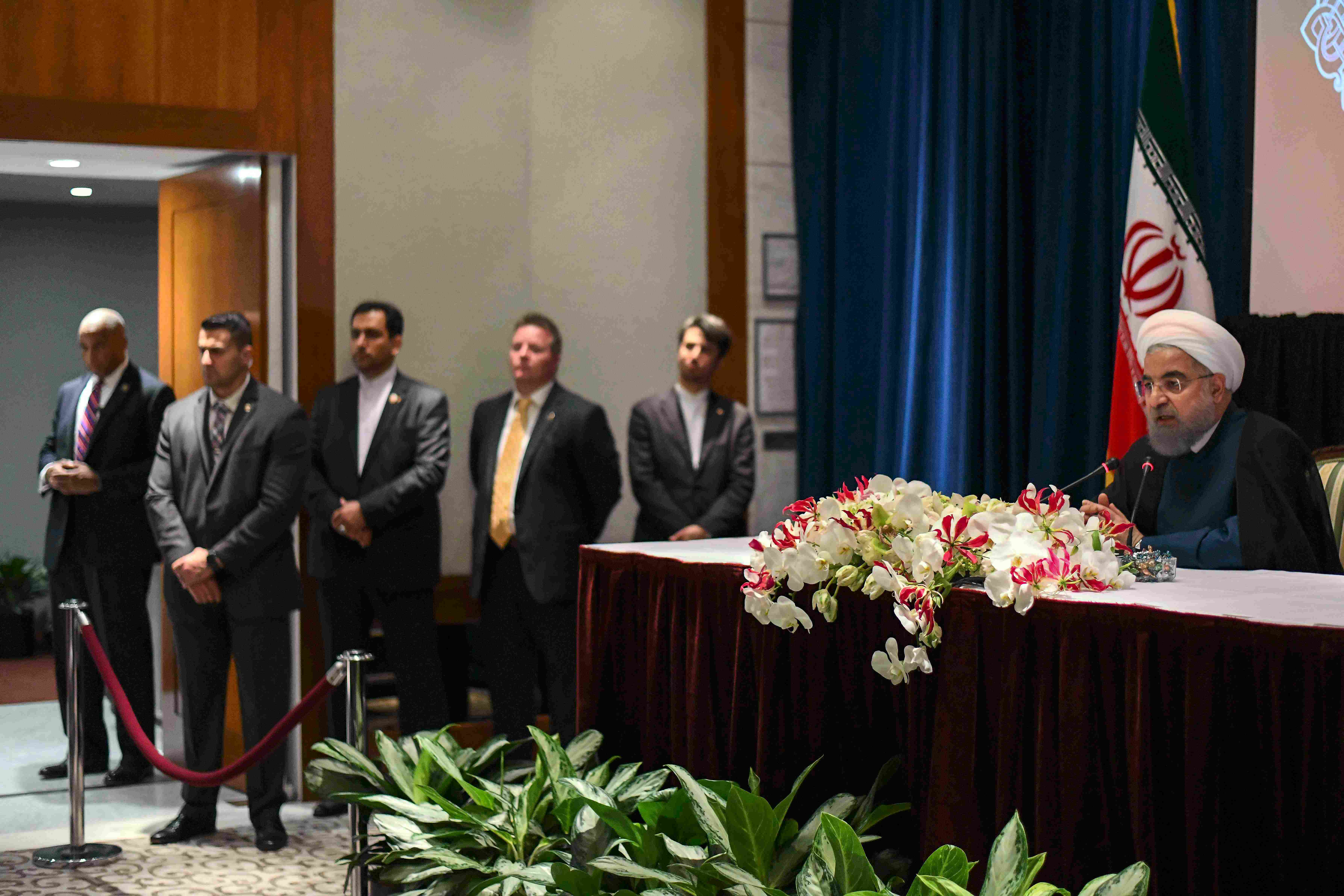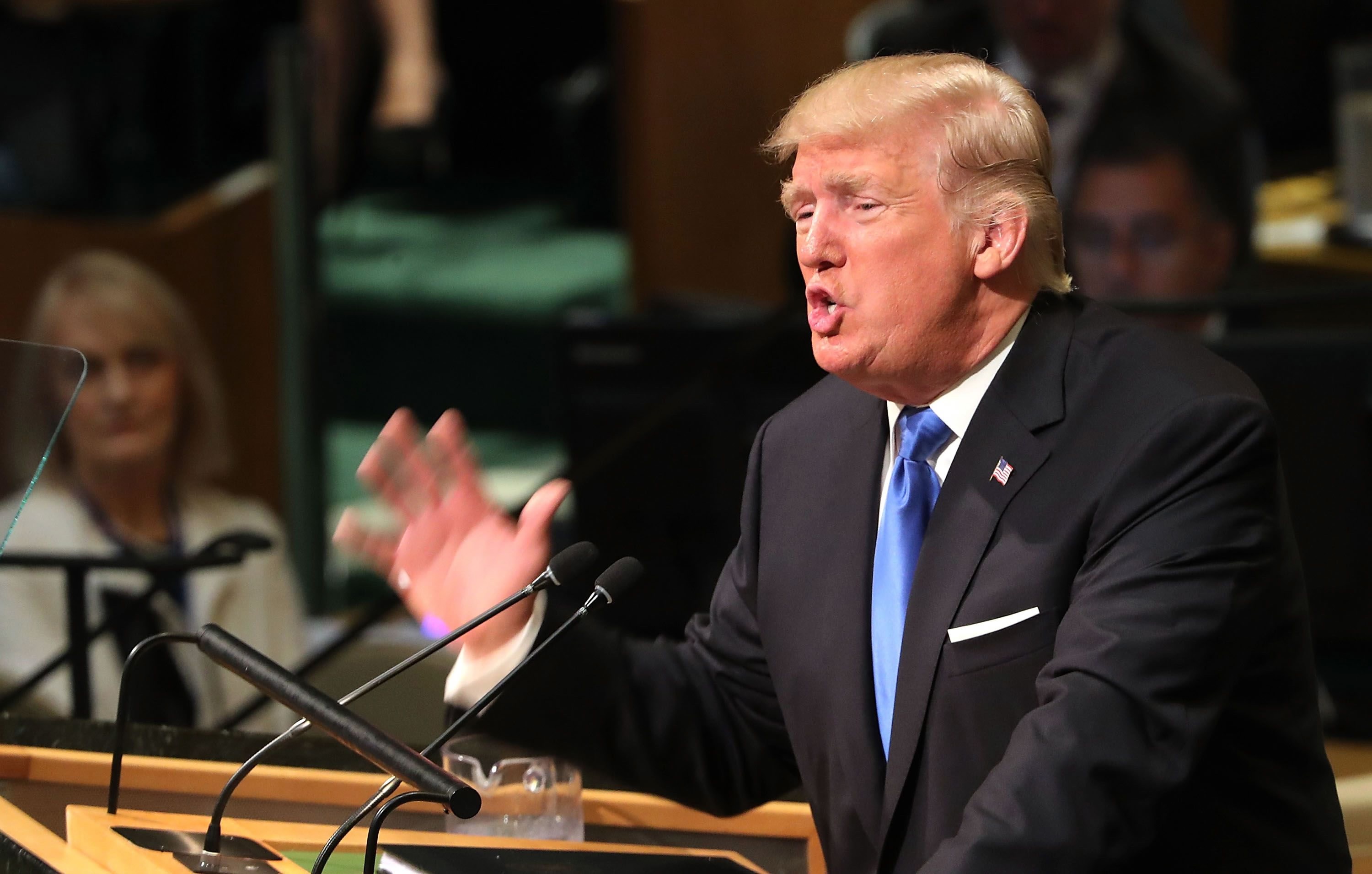
Politics
08:30, 21-Sep-2017
Iranian President hits back at Trump
CGTN

Iranian President Hassan Rouhani slammed US President Donald Trump for his anti-Iran remarks at the UN speech, referring him "rogue" newcomer to politics.
Trump's "rhetoric against Iran was ignorant and spiteful, abundant with false information and baseless allegations," Rouhani said, addressing the 72nd session of the UN General Assembly.

Iran's President Hassan Rouhani answers a question during a press conference in
New York, September 20, 2017, on the sideline of the 72nd Session of the UN General Assembly. /AFP Photo
Iran's President Hassan Rouhani answers a question during a press conference in New York, September 20, 2017, on the sideline of the 72nd Session of the UN General Assembly. /AFP Photo
During his speech at the UN General Assembly on Tuesday, Trump commented Iran as a rogue state and accused Iran of "destabilizing" the Middle East region and "supporting terror."
Besides, Trump called the Iran nuclear deal, reached during former President Barack Obama's administration, "an embarrassment" for the US, indicating that he may not recertify the deal at its mid-October deadline.
Trump blasted the deal as "one of the worst and one-sided transactions the US has ever entered into."

President Donald Trump speaks to world leaders at the 72nd UN General Assembly at UN headquarters in New York, September 19, 2017. /AFP Photo
President Donald Trump speaks to world leaders at the 72nd UN General Assembly at UN headquarters in New York, September 19, 2017. /AFP Photo
Rouhani responded, "It will be a great pity if this agreement were to be destroyed by rogue newcomers to the world of politics," throwing the word "rogue" back to Trump.
According to the Iran nuclear deal, or formally known as the Joint Comprehensive Plan of Action (JCPOA), all nuclear-related sanctions imposed on Iran will be removed if the country is proved to abide by the deal over the next few years.
In reaction, Rouhani dismissed the US "destabilization" allegations and supported the JCPOA as an international accord.
"Today, we are on the frontlines of fighting terror and religious extremism in the Middle east; not for sectarian or ethnic reasons, but for an ethical, humanitarian causes," he said.

Iran's President Hassan Rouhani answers a question during a press conference in
New York on September 20, 2017, on the sideline of the 72nd Session of the
UN General Assembly. /AFP Photo
Iran's President Hassan Rouhani answers a question during a press conference in New York on September 20, 2017, on the sideline of the 72nd Session of the UN General Assembly. /AFP Photo
Iran does not seek to restore its ancient empire, impose its official religion on others, or export its revolution to other countries through the force of arms, he pointed out.
Moreover, Iran's nuclear deal is the outcome of two years of intensive multilateral negotiations, overwhelmingly applauded by the international community and endorsed by the Security Council as a part of Resolution 2231, Rouhani said.
"The JCPOA does not belong to one or two countries. It is a UNSC document, which belongs to the entire international community," Rouhani said, adding that Iran would respond to any breach of the JCPOA.
The Iranian president also drew the global attention to what he referred to as "threats" posed to the Middle East region by the nuclear arms at the disposal of Israel.
11001km
Source(s): Xinhua News Agency

SITEMAP
Copyright © 2018 CGTN. Beijing ICP prepared NO.16065310-3
Copyright © 2018 CGTN. Beijing ICP prepared NO.16065310-3